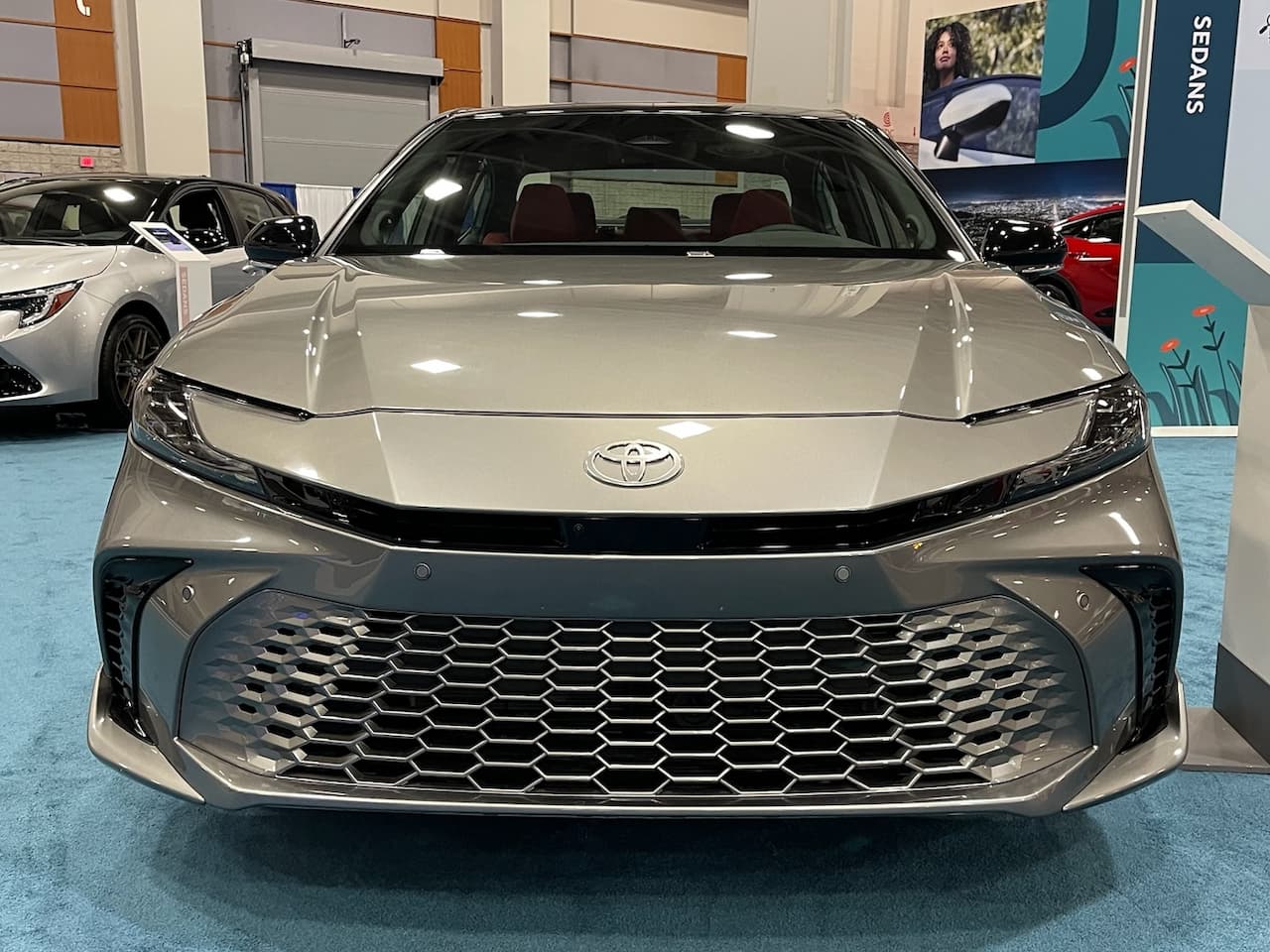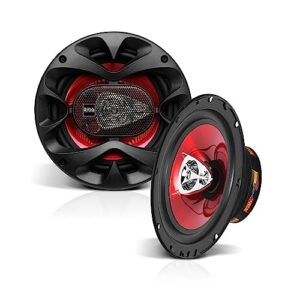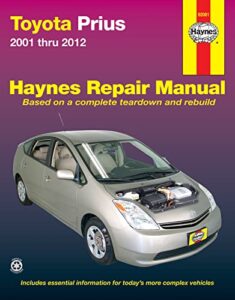As an Amazon Associate, I earn from qualifying purchases
Have you ever wondered just how heavy a Toyota Camry is? Whether you’re curious about its fuel efficiency, handling, or even parking ease, knowing the weight of your car can make a big difference.
The weight affects more than just how your Camry drives—it impacts safety, performance, and even what kind of maintenance you might need. Keep reading, and you’ll discover everything you need to know about the Toyota Camry’s weight and why it matters to you.

Credit: www.greentoyota.com
Toyota Camry Weight Overview
The weight of a Toyota Camry affects many things. It changes how the car drives and uses fuel. It also influences safety and handling. Knowing the Camry’s weight helps when comparing it to other cars.
The Camry’s weight varies by model and year. Newer models may weigh more due to extra features. Lighter cars often feel faster but may be less stable. Heavier cars tend to feel solid and safe.
Standard Weight Of Toyota Camry
The typical Toyota Camry weighs about 3,300 to 3,600 pounds. This range covers most trims and engine types. The base models are usually lighter. Models with bigger engines or more equipment weigh more.
Weight Differences By Model Year
Older Camrys often weigh less than newer ones. New safety rules and tech add weight over time. For example, a 2010 Camry weighs less than a 2023 model. Still, the changes are usually small.
Impact Of Engine Type On Weight
The engine size changes the car’s weight. Four-cylinder models are lighter, around 3,300 pounds. V6 engines add about 200 to 300 pounds. Hybrid versions can weigh more due to batteries.
How Weight Affects Fuel Economy
Heavier cars use more fuel. A heavier Camry needs more power to move. This lowers miles per gallon (MPG). Lighter Camrys usually get better fuel efficiency. But other factors like engine type also matter.
Weight Variations By Model Year
The weight of a Toyota Camry changes with each model year. These changes reflect updates in design, safety features, and materials. Some years see a lighter car, while others add weight for strength and comfort.
Knowing the weight differences helps understand performance and fuel efficiency. It also matters for towing, parking, and handling. Each model year offers unique specs that affect how heavy the car feels.
Weight Of Early Toyota Camry Models (1980s-1990s)
Early Toyota Camrys were lighter than modern versions. They weighed between 2,600 and 2,800 pounds. These cars were smaller and had fewer safety features. This kept the weight down and made them easy to drive.
Weight Changes In 2000s Camry Models
Camrys from the 2000s grew heavier. They ranged from 3,100 to 3,400 pounds. Added safety parts and bigger engines caused this rise. The cars also got larger for more passenger space.
Recent Toyota Camry Models Weight (2010s-2020s)
Modern Camrys weigh about 3,300 to 3,500 pounds. New materials help control weight despite more technology. Hybrid models can weigh slightly more because of batteries. The balance of weight supports better fuel economy and safety.
Impact Of Trim Levels On Weight
The weight of a Toyota Camry changes with its trim level. Each trim adds or removes features. These changes affect the car’s total weight. Knowing these differences helps buyers understand the car better. Weight impacts fuel efficiency, handling, and performance.
Base Vs. Premium Trims
The base trim of the Toyota Camry is the lightest. It has fewer features and simpler materials. Premium trims add more technology and comfort parts. These include bigger wheels, sunroof, and leather seats. Each added feature adds pounds to the car’s weight. Premium trims can weigh around 100-200 pounds more than base trims.
Hybrid Vs. Gasoline Models
Hybrid Camrys weigh more than gasoline models. The extra weight comes from the battery pack and electric motor. These parts add hundreds of pounds. The hybrid system improves fuel economy but increases weight. Gasoline models stay lighter with just the engine and fuel system. Buyers should consider this weight difference for driving needs.

Credit: www.jdpower.com
Weight Differences In Engine Types
The weight of a Toyota Camry varies with the engine type it uses. Each engine adds its own amount of weight to the car. This difference affects how the car drives and how much fuel it uses. Understanding these weight changes helps when choosing the right Camry model.
Four-cylinder Engines
Four-cylinder engines are the lightest option in the Camry lineup. They weigh less because they have fewer parts. This makes the car lighter overall. A lighter car can use less fuel and handle better in traffic. It is a good choice for daily city driving.
V6 Engines
V6 engines add more weight than four-cylinder ones. They have six cylinders, which makes the engine bigger and heavier. This extra weight can change how the car feels on the road. The V6 offers more power, but also increases the car’s total weight. This may lower fuel efficiency slightly.
Hybrid Powertrains
Hybrid Camrys include both an engine and an electric motor. The battery packs add extra weight to the car. This makes hybrids heavier than non-hybrid versions. Despite the added weight, hybrids use less fuel overall. They balance weight and efficiency for better mileage.
How Weight Affects Performance
The weight of a Toyota Camry plays a key role in how it performs on the road. Weight changes many parts of driving. It affects fuel use, how the car feels during turns, and how fast it can stop or speed up. Understanding these effects helps drivers know what to expect from their Camry.
Fuel Efficiency
Heavier cars need more fuel to move. The Toyota Camry’s weight can slightly lower its fuel efficiency. More weight means the engine works harder. This uses more gas, especially in city driving. Lighter cars save more fuel on long trips.
Handling And Stability
Weight affects how the Camry handles corners and bumps. A heavier car feels more stable on highways. It stays steady in strong winds. But more weight can make sharp turns slower. The balance between weight and design helps keep the Camry safe.
Acceleration And Braking
Extra weight means the Camry takes more time to speed up. The engine has to push more mass forward. Braking also changes with weight. Heavier cars need longer distances to stop. Brake systems on the Camry are built to handle this safely.
Comparing Camry Weight To Competitors
Understanding the weight of the Toyota Camry helps compare it with other cars. Weight affects fuel use, handling, and comfort. Comparing the Camry to rivals shows where it stands in size and efficiency.
The Camry weighs about 3,300 to 3,600 pounds, depending on the model. This weight range fits the midsize sedan category well. Competitors may be lighter or heavier, which impacts their driving feel and economy.
Weight Of The Honda Accord
The Honda Accord weighs around 3,300 to 3,500 pounds. It is close to the Camry’s weight. This similarity means both cars offer a balanced ride and good fuel economy. Small differences in weight do not change much for daily driving.
Weight Of The Nissan Altima
The Nissan Altima weighs about 3,300 to 3,400 pounds. It is slightly lighter than some Camry models. This lower weight may help the Altima feel quicker and more agile. Drivers may notice a bit more fuel efficiency too.
Weight Of The Hyundai Sonata
The Hyundai Sonata weighs between 3,300 and 3,600 pounds. Its weight is very close to the Camry’s. Both cars compete well in comfort and stability. The Sonata’s weight allows smooth driving and steady handling.
Weight Of The Mazda6
The Mazda6 weighs around 3,300 to 3,600 pounds. Like the Camry, it falls in the midsize sedan weight range. This weight helps the Mazda6 deliver a sporty yet comfortable drive. It balances performance with fuel economy.
Factors Influencing Vehicle Weight
Several factors affect the weight of a Toyota Camry. Understanding these helps to know why weights vary across models. Vehicle weight impacts fuel efficiency, handling, and safety. Small changes in design or features can add or reduce pounds.
Materials And Build
The materials used in the Camry’s construction influence its weight. Steel is common for strength but adds more weight. Aluminum parts reduce weight and improve fuel economy. Some models use a mix of materials for balance. The frame design and thickness also affect total weight.
Added Features And Options
Extra features add to the car’s weight. Luxury options like leather seats or sunroofs increase pounds. Advanced safety systems and technology add small amounts of weight too. Different engine types cause weight differences. More features mean a heavier vehicle overall.
Checking Your Camry’s Exact Weight
Knowing your Toyota Camry’s exact weight helps in many ways. It matters for towing, fuel efficiency, and safety. Each model and year can weigh a bit differently. Checking the exact weight ensures you have the right information for your needs.
There are simple ways to find this information. Some are right inside your car, and others are available online. Use these methods to get the precise weight of your Camry.
Using The Owner’s Manual
The owner’s manual is a great place to start. It contains detailed specs about your Camry. You can find the curb weight, which is the car’s weight without passengers or cargo. Manuals often list different weights for various trims and engines. Check the section about vehicle specifications or technical data.
Finding Weight On Door Placards
Look at the driver’s side door frame or door edge. There is a sticker called the door placard. This placard shows important info like tire pressure and vehicle weight. Find the Gross Vehicle Weight Rating (GVWR) and curb weight. These numbers tell you the maximum safe weight and the car’s empty weight.
Online Resources
Many websites provide detailed weight info for Toyota Camry models. Official Toyota sites or car review pages list specs clearly. Use your model year and trim to narrow down the search. Online forums and owner groups can also share accurate weight details. Cross-check from multiple sources to confirm the data.

Credit: topelectricsuv.com
Frequently Asked Questions
How Much Does A Toyota Camry Weigh?
A Toyota Camry weighs between 3,240 and 3,572 pounds depending on the model and trim.
Does The Camry’s Weight Affect Fuel Efficiency?
Yes, heavier Camry models generally use a bit more fuel than lighter ones.
How Does The Weight Vary Across Toyota Camry Years?
Older Camry models tend to be lighter than newer versions with added features.
What Factors Influence The Toyota Camry’s Weight?
Engine size, trim level, and added safety features change the car’s weight.
Is The Toyota Camry Heavier Than Similar Sedans?
The Camry’s weight is average compared to other midsize sedans in its class.
Why Does Toyota Camry Weight Matter For Drivers?
Weight impacts handling, fuel use, and safety during driving and crashes.
Conclusion
The Toyota Camry weighs between 3,200 and 3,600 pounds. This weight helps with safe handling and fuel efficiency. It fits well in most parking spaces. Knowing the weight aids in towing and transport plans. Overall, the Camry offers a good balance of size and weight.
This makes it a popular choice for many drivers. The weight also affects how the car feels on the road. Keep this in mind when choosing a vehicle. The Camry’s weight suits everyday driving needs well.
As an Amazon Associate, I earn from qualifying purchases


